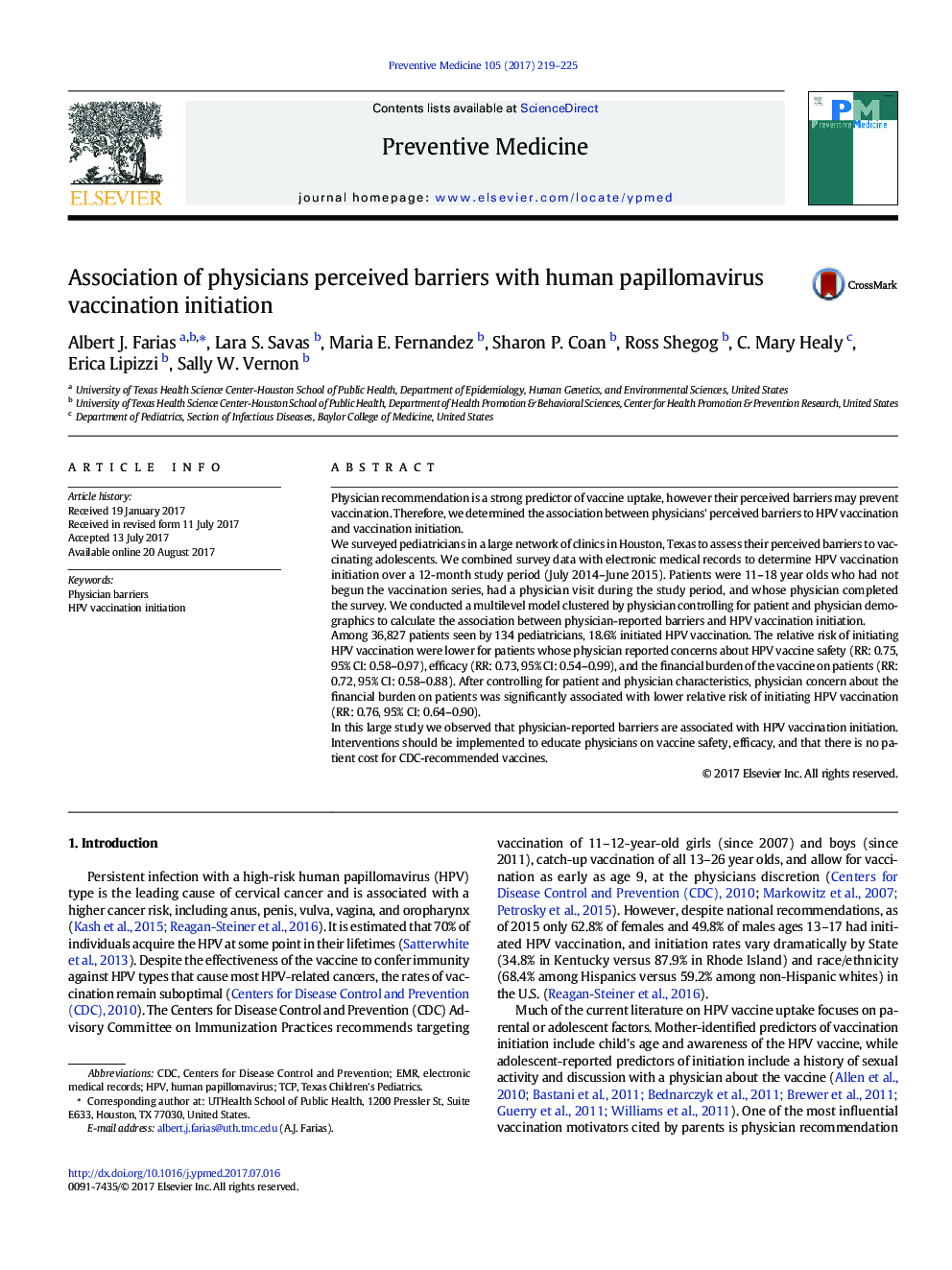| Article ID | Journal | Published Year | Pages | File Type |
|---|---|---|---|---|
| 5635480 | Preventive Medicine | 2017 | 7 Pages |
â¢Physician recommendation is a strong predictor of vaccine uptake.â¢HPV vaccination remains low and vary by treating pediatrician.â¢Physician concern about vaccine safety and efficacy may influence HPV vaccination.â¢Physician concern about the financial burden strongly influence HPV vaccination.
Physician recommendation is a strong predictor of vaccine uptake, however their perceived barriers may prevent vaccination. Therefore, we determined the association between physicians' perceived barriers to HPV vaccination and vaccination initiation.We surveyed pediatricians in a large network of clinics in Houston, Texas to assess their perceived barriers to vaccinating adolescents. We combined survey data with electronic medical records to determine HPV vaccination initiation over a 12-month study period (July 2014-June 2015). Patients were 11-18Â year olds who had not begun the vaccination series, had a physician visit during the study period, and whose physician completed the survey. We conducted a multilevel model clustered by physician controlling for patient and physician demographics to calculate the association between physician-reported barriers and HPV vaccination initiation.Among 36,827 patients seen by 134 pediatricians, 18.6% initiated HPV vaccination. The relative risk of initiating HPV vaccination were lower for patients whose physician reported concerns about HPV vaccine safety (RR: 0.75, 95% CI: 0.58-0.97), efficacy (RR: 0.73, 95% CI: 0.54-0.99), and the financial burden of the vaccine on patients (RR: 0.72, 95% CI: 0.58-0.88). After controlling for patient and physician characteristics, physician concern about the financial burden on patients was significantly associated with lower relative risk of initiating HPV vaccination (RR: 0.76, 95% CI: 0.64-0.90).In this large study we observed that physician-reported barriers are associated with HPV vaccination initiation. Interventions should be implemented to educate physicians on vaccine safety, efficacy, and that there is no patient cost for CDC-recommended vaccines.
